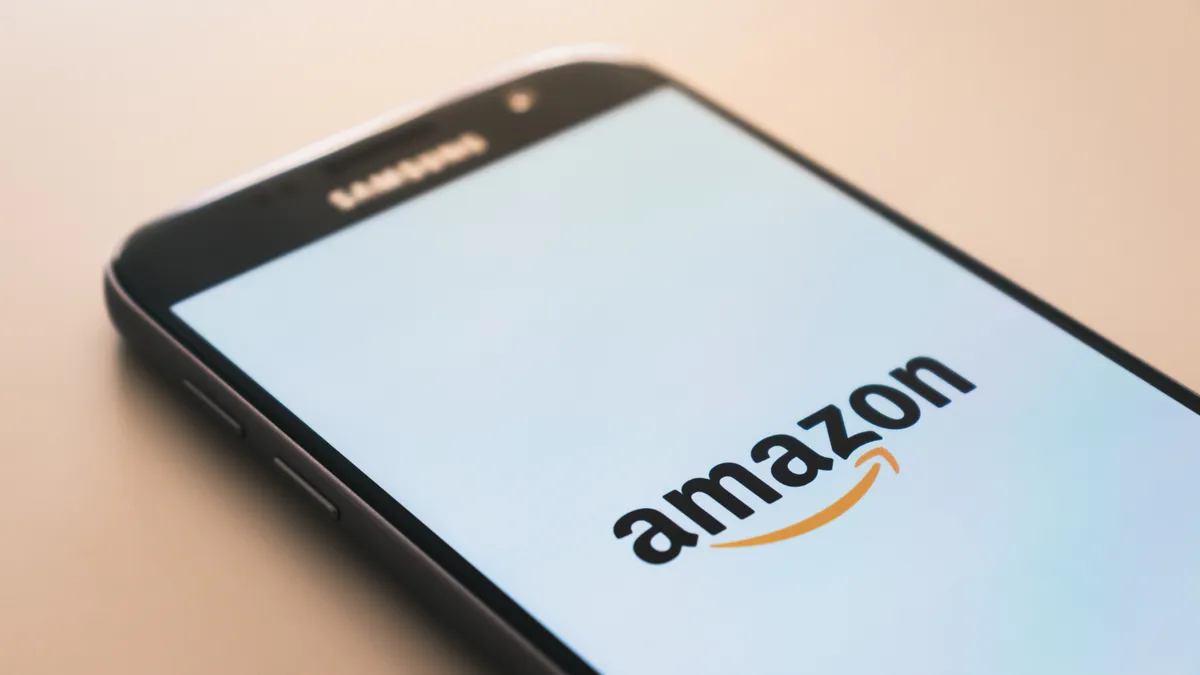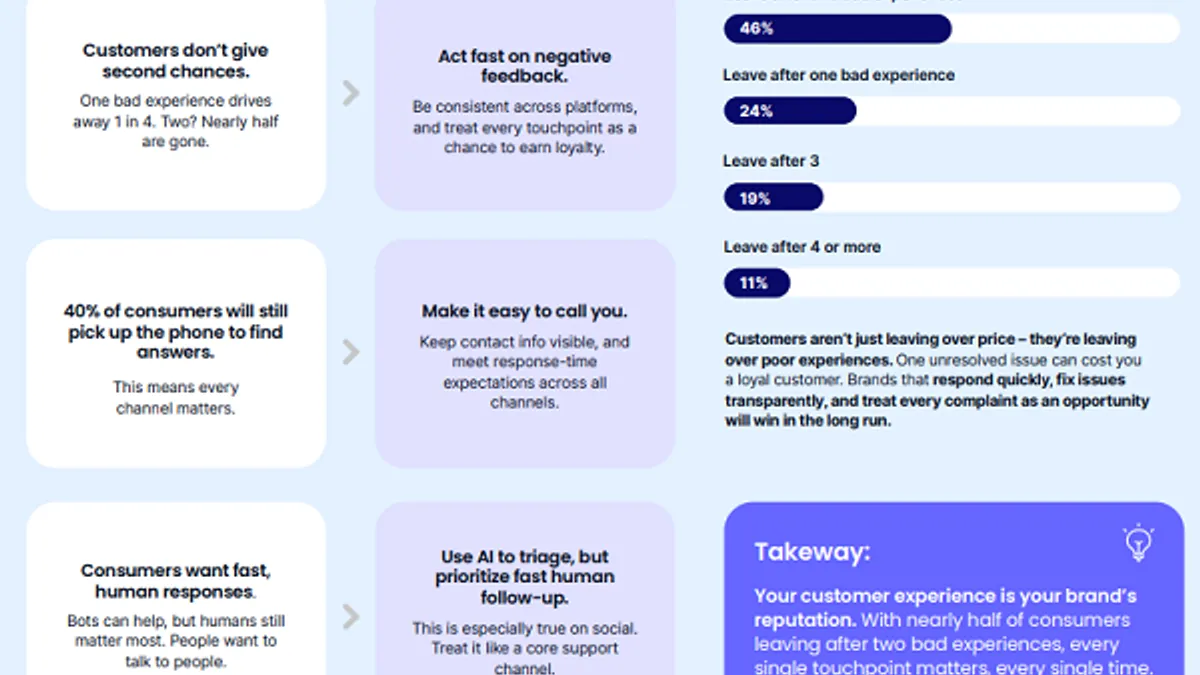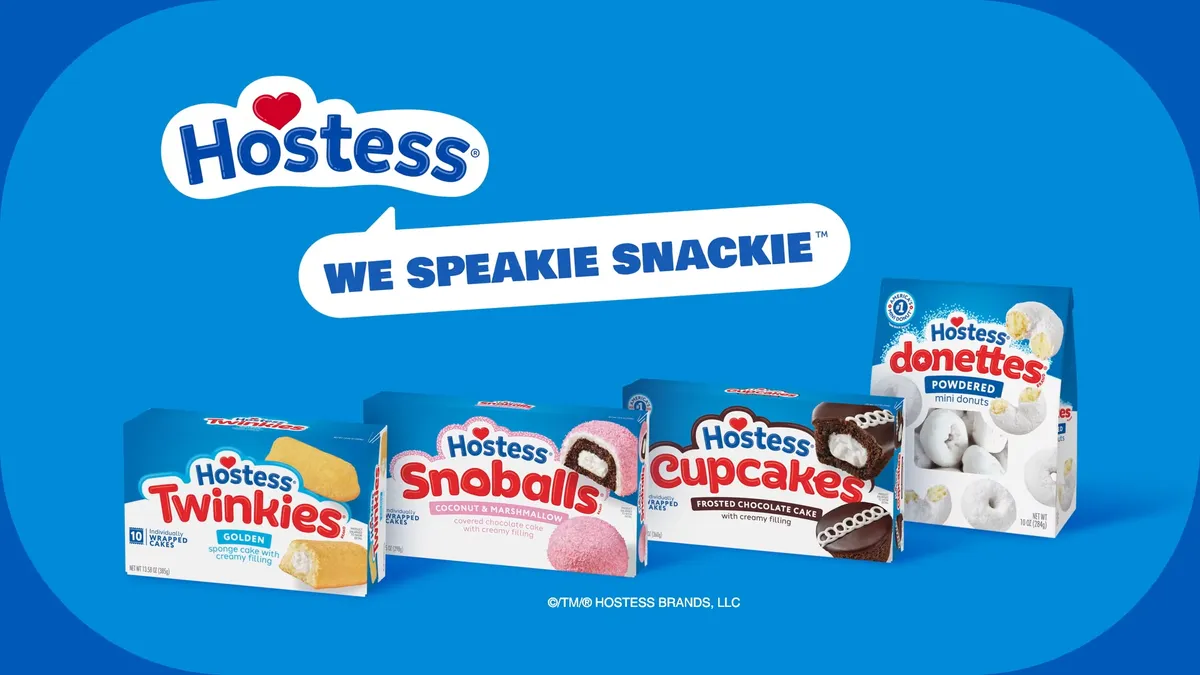Historically, tech giants Google, Amazon, Apple and Facebook haven't played by the same rules as traditional companies. Their collective value is north of $3 trillion because they've been given special treatment on business and legal fronts — but that's now changing due to greater public awareness, proposed legislation and consumer backlash toward unethical companies, creating opportunities for retailers to level the playing field, according to a new Forrester report, "Commerce Companies: Stop Living At The Mercy Of The Tech Titans."
Legal protections and lack of accountability have helped the four tech behemoths to gain global acceptance, driving retailers to cooperate with them in order to reach consumers where they spend time, the report's author and Forrester VP, principal analyst, Sucharita Kodali, told Marketing Dive.
"It made sense 20 years ago when the internet was fledgling, but these are companies that are no longer fledgling. They're titans of the universe that have taken advantage of their positions and are fiercely protecting their competitive advantage, which is not about them being better, smarter or faster," Kodali said. "Their competitive advantage is that the law protects them. It is time for traditional companies to step up and say, 'This is ridiculous. This is not a level playing field.'"
Invest in brand building
Kodali argues that retailers can take a page from the titans' playbook by mimicking their strengths in effective hiring, fostering innovation-focused cultures, utilizing automation and focusing on feedback.
In doing so, brands and retailers must invest in brand building so they are no longer dependent on web traffic or sales stemming from advertising on the titans' platforms, the report suggests. Compelling loyalty programs and unique content can help companies maintain direct relationships with customers while circumventing "tolls" paid to ad platforms like Facebook and Google.
While shifting customer retention efforts to be independent of the tech titans, brands can similarly sever ties through a strategy for better managing their inventory flow and product information — a concept called e-control by a growing number of entities, per Forrester. Crafting authorized reseller agreements and establishing legal teams to crack down on misinformation or counterfeit items on resale marketplaces will position brands' owned assets, such as stores and websites, as sole authentic platforms for a brand. Nike took this approach in November by pulling its products from Amazon.
Lobby to right past wrongs
Just as companies beef up their legal teams to combat threats in counterfeit products and misinformation, brands and retailers can further level the playing field by taking a seat at the lawmaking table, Kodali said.
"Traditional companies are going to start to get their act together and establish government relations teams that lobby for legislation in the best interests of consumers and small businesses," she said. "If the single biggest threat to your business is Amazon, and Amazon is unfairly advantaged by certain laws, why are you not fighting? It's just baffling to me that retailers have been completely asleep at the wheel."
Brand protection teams and new trade organizations are forecast to emerge to neutralize advantages that favor the tech giants. While some laws already exist, such as the Federal Trade Commission's rules around disclosing paid influencer content, they are seldom enforced, according to Forrester.
"We expect that in the near future, a new network of attorneys specializing in marketplaces will support commerce companies alleging unfair business practices. This specialty profession will force accountability on the part of sellers on these platforms," the report notes. "These watchdogs will also monitor contributions by the titans to local and state elections, with a particular eye on contributions to judicial candidates who may favor them in court cases."
Take the high road
Transparency also has been a running theme in the marketing world for years, and research suggests that consumers reward brands that honor their growing demands for privacy. Highly publicized data breaches and targeted advertising have made consumers wary of sharing personal information that underpin data-driven marketing strategies.
Brands that respect customers' wishes around privacy and are transparent, fair and honest will thrive in the long run — even if those efforts cut into short-term sales — Forrester's report suggests. By operating from a higher moral ground and calling out the tech giants when they don't, brands and retailers can further level the playing field that has favored Amazon, Google, Facebook and Apple, according to Kodali.
"Laws haven't caught up to the technology and trends, and it's just a matter of time before all of this catches up to us and people caught in the snare will have to pay the piper," she said.























